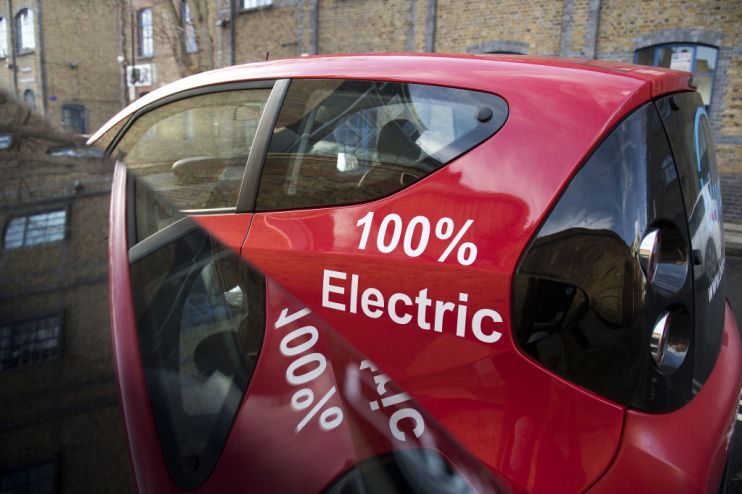From Wigan Warrior to eco-warrior: Let’s make the future electric

I remember the moment my future went electric.
No, it wasn’t as I was sprinting 90m for a try in the 1994 Challenge Cup Final against Leeds. It was when I first took my wife’s second-hand BMW i3 for a drive a couple of years ago.
We had bought an electric motor as our second car, but it quickly became my first choice to get around town. Pretty soon nobody in the family wanted to drive our Range Rover because it meant footing the outrageous petrol bill. Plugging in the i3 was the much better (and cheaper) play.
The challenge for countries like Britain now is to convince as many people as possible to make the switch to electric vehicles. And with Covid-19, we have a window in which to embrace the future.
One of the few benefits of this horrible pandemic — along with the rebirth in our community spirit and newfound respect for our carers — is the cleaner air we have been able to breathe. Wouldn’t it be wonderful to keep that benefit by making electric vehicles the new normal?
As a boy from Hackney, the child of immigrant parents, I know how distant the electric vehicle conversation can feel in some communities, especially in low-income urban areas. But these communities already bear the brunt of our failure to act on air quality. Every year 40,000 people die prematurely from pollution in urban areas, most of that from vehicle pollution. Delaying the adoption of electric vehicles is to rob these communities of a part of their future.
As the coronavirus crisis is proving every day, cities must change. Whether it’s to adapt to public health guidance or to embrace long-term environmental sustainability, the cities of the future will be different to the places we now call home. The government’s decision to ban traditional diesel and petrol vehicles by 2035 alone will force through tremendous change.
However, unless we plan carefully to deliver that change, we risk leaving some of our most vulnerable communities behind. Many of us have more immediate concerns than air quality, like finding a new job or keeping our children in school — but the move to electric vehicles must not become a two-tier journey dependent on income. We need to find policies that give as many people access to clean technology as possible.
Fortunately, the long-term economics of electric vehicles make sense no matter your financial situation. Every year motorists — rich and poor alike — pour hundreds, if not thousands of pounds into their petrol tanks. Reducing that filling fee to a few bob on your electricity tariff will save enough over the average life of a car to make the initial outlay pay off.
The difficulty is in getting the ball rolling.
A good place to start would be with a much stronger network of electric vehicle charging points. More reliability and availability on charging would encourage more early adopters like me to take a punt on electric and help drive the cost of electric vehicle production down.
Then, as the early adopters look to sell on and purchase new vehicles, we will spark a secondary market for our cars, as has recently been seen with the Prius and Uber drivers. A vibrant secondary market will help push electric vehicles further down the socioeconomic ladder.
But the future will not truly go electric until we add another element: convenience. Most of us will not adopt electric vehicles until we are able to charge them at home, or until there are curbside charge points on all residential streets. Research shows that 80 per cent of us want to be able to charge at home. And while the government has grants to help install residential charge points, they are contingent on having a driveway or off-street parking. Unfortunately, 60 per cent of us park on the streets of Britain, particularly in dense cities like London. We need a new approach.
Thankfully, Britain is in a good position to deliver the future — at least on the tech side. Whether it’s electric vehicle technology or the infrastructure that goes with it, British companies are leading the way.
Now it’s up to our politicians to create the conditions that allow us to put that technology to use up and down the country. Together, we can ensure the future is cleaner, greener, and sustainably powered, and launch a new generation of eco-warriors.
Main image credit: Getty